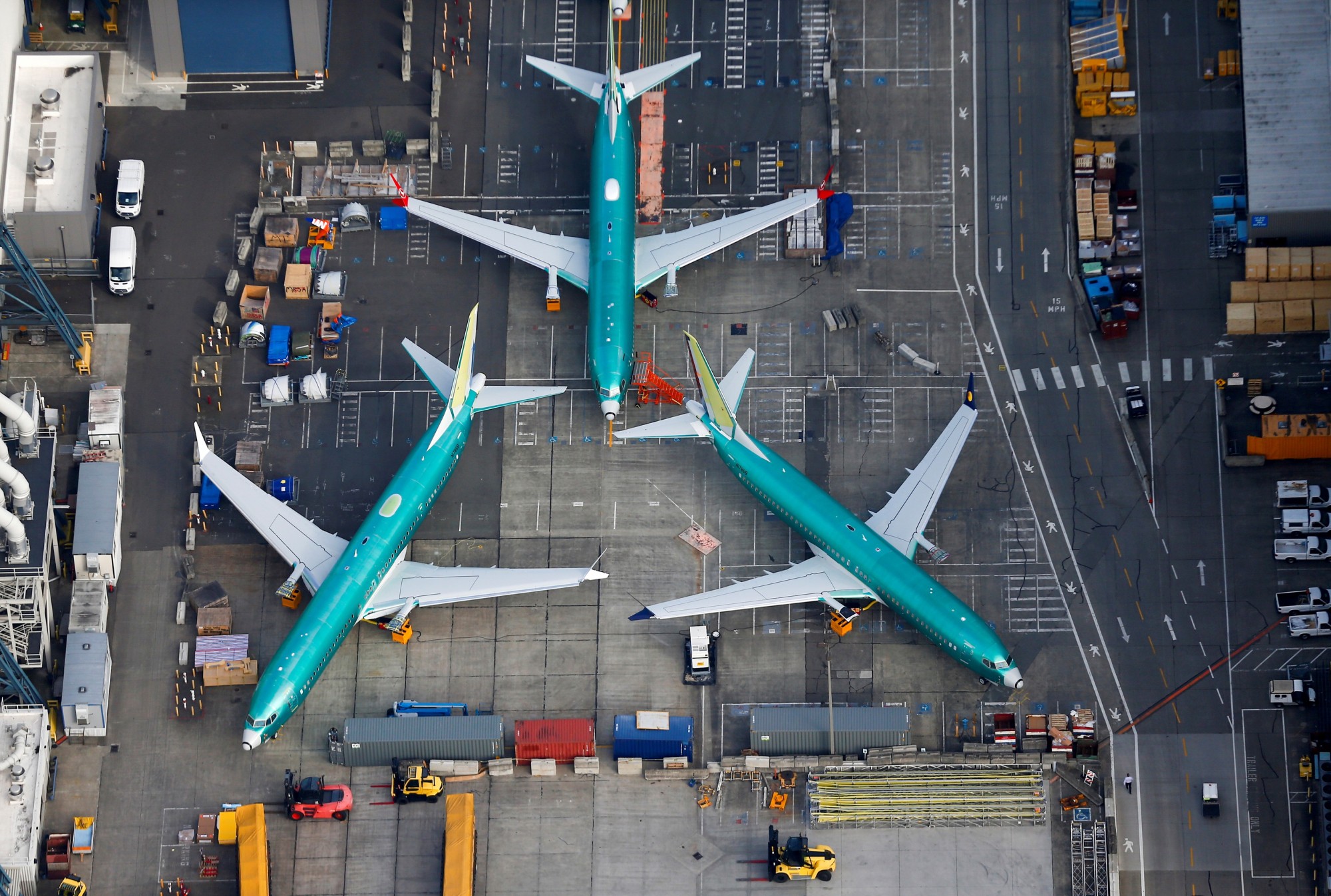Tests on Boeing Co.'s grounded 737 Max have revealed a new safety risk unrelated to two fatal crashes that led to the grounding of the aircraft, and U.S. regulators are ordering the company to make additional design changes.
The Federal Aviation Administration discovered that a failure of a microprocessor on the jet could cause the plane to dive in a way that pilots had difficulty recovering from in simulator tests, according to a person familiar with the finding who asked not to be named.
"The FAA recently found a potential risk that Boeing must mitigate," the agency said in an emailed statement Wednesday. The statement didn't provide any specifics.
While the issue didn't involve the Maneuvering Characteristics Augmentation System linked to the two fatal accidents since October that killed 346 people, it could produce an uncommanded dive similar to what occurred in the crashes, according to the person, who wasn't authorized to speak about the matter.
"The safety of our airplanes is Boeing's highest priority," said Boeing spokesman Gordon Johndroe. "We are working closely with the FAA to safely return the Max to service."
The 737 Max has been grounded worldwide since March 13, days after the second crash. "The FAA will lift the aircraft's prohibition order when we deem it is safe to do so," the FAA said in the statement.




















With your current subscription plan you can comment on stories. However, before writing your first comment, please create a display name in the Profile section of your subscriber account page.